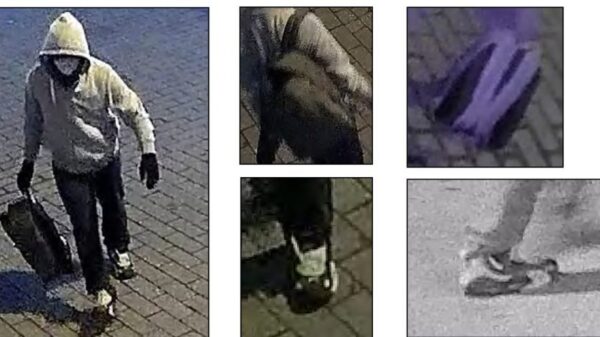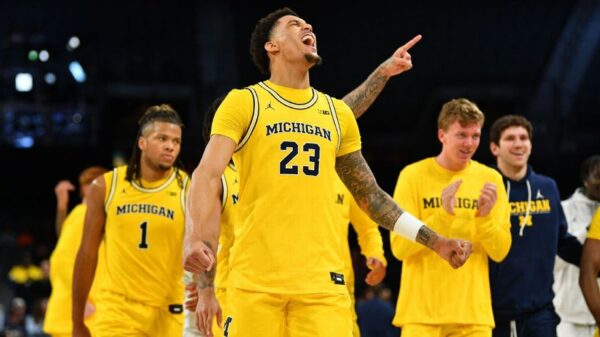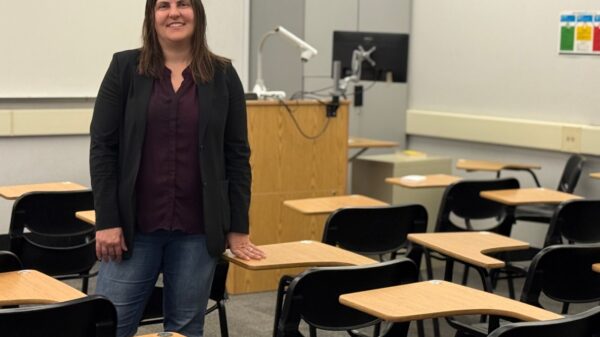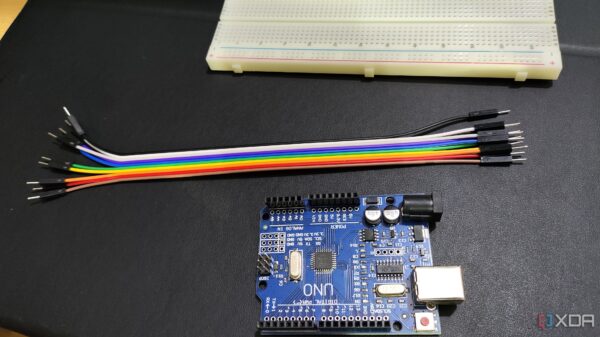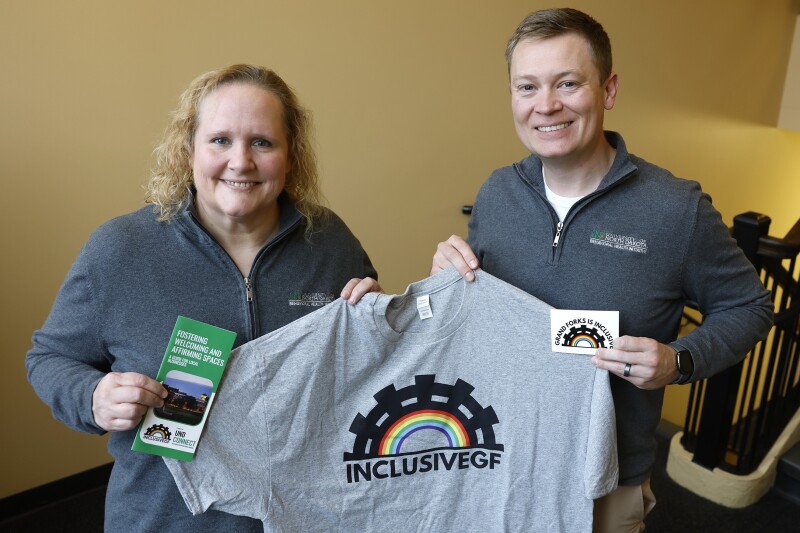Researchers from the University of North Dakota (UND) have created a guide aimed at helping local businesses in Grand Forks become more welcoming and affirming to LGBTQ+ customers. The initiative stems from a year-long study involving interviews with local business owners and LGBTQ+ community members, aiming to identify ways to foster inclusivity in the area.
The project, known as Inclusive GF, is led by researchers Ethan Dahl and Mariah Sorby, who emphasize the need for ongoing engagement rather than a one-time solution. “I think it has to be a little bit of a living, breathing thing,” Dahl remarked, highlighting the commitment to provide resources beyond just printed materials.
Insights and Recommendations for Local Businesses
Inclusive GF plans to start by distributing information and branded merchandise to businesses expressing interest in promoting inclusivity. Future objectives include developing training programs and contributing to academic publications. This initiative is particularly critical in light of a pressing need for LGBTQ+ individuals to identify safe and supportive spaces within the community.
According to Sorby, local organizations have indicated a strong desire for LGBTQ+ individuals to know where they can feel safe and respected. “Given the climate right now, I think it’s especially important in our state for businesses to communicate, and to really practice what they preach in terms of inclusivity,” she stated.
The research included interviews with six business owners and 16 LGBTQ+ individuals. Although data analysis is ongoing, preliminary findings suggest that many business owners wish to show their support but do not know how. Conversely, LGBTQ+ residents have clear expectations of what makes them feel welcome. Notably, UND students appeared to be more aware of local LGBTQ+ resources compared to non-students.
From the data collected, the research team identified five actionable steps for businesses:
- Advertise as LGBTQ+ friendly by using online tags or obtaining certification from the National LGBTQ Chamber of Commerce.
- Utilize environmental cues such as stickers, flags, or pronoun usage on employee name tags.
- Implement anti-discrimination policies that establish clear expectations for both customers and employees.
- Engage with the LGBTQ+ community by sponsoring events or providing space for gatherings.
- Prioritize education on what it means to be an inclusive space.
Challenges in Engaging Business Owners
While many business owners expressed a desire to be more inclusive, Sorby acknowledged that there may be a sampling bias in the data, as those who volunteered to be interviewed were likely already inclined to support LGBTQ+ issues. She noted that existing resources often cater to more liberal environments, leaving many local business owners uncertain about how to navigate inclusivity without alienating their customer base.
As Sorby explained, “There’s not that nuance of, ‘Well, how do I navigate this and not alienate my customer base?’” This highlights the intention of the Inclusive GF team to initiate a dialogue on balancing inclusivity with successful business practices. “This is the start of our journey,” she added. “We want to continue to have these conversations and hopefully make a better community for everybody.”
The research project was funded by UND CONNECT, supported by the North Dakota Economic Diversification Research Grant Fund. Initially partnered with the Grand Forks chapter of PFLAG, the project is now supported by Forward701, a statewide LGBTQ+ organization, which hosts the website forward701.org/gf-is-inclusive.
Despite a shift in community partnership, the research team remains focused on Grand Forks to better understand local dynamics, emphasizing that the experiences of LGBTQ+ individuals in larger cities may differ significantly. Dahl pointed out, “What’s going on in Fargo in the queer community… is different than what’s going on in the queer community here.”
Through their research, Dahl and Sorby hope to bridge the gap between business owners and the LGBTQ+ community. They encountered challenges in reaching business owners, particularly during the week of the 2024 presidential election, which may have affected participation rates. Dahl noted the difficulty in capturing perspectives from those opposed to affirming policies, as many were hesitant to engage even with assurances of anonymity.
As the project progresses, the Inclusive GF team aims to foster ongoing dialogue and resource-sharing to enhance the community’s inclusivity and support for all its members.


